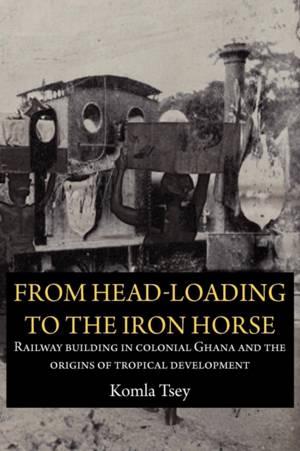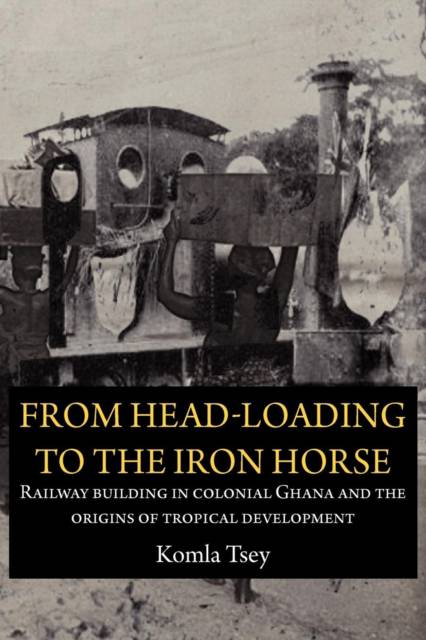
Bedankt voor het vertrouwen het afgelopen jaar! Om jou te bedanken bieden we GRATIS verzending (in België) aan op alles gedurende de hele maand januari.
- Afhalen na 1 uur in een winkel met voorraad
- Gratis thuislevering in België vanaf € 30
- Ruim aanbod met 7 miljoen producten
Bedankt voor het vertrouwen het afgelopen jaar! Om jou te bedanken bieden we GRATIS verzending (in België) aan op alles gedurende de hele maand januari.
- Afhalen na 1 uur in een winkel met voorraad
- Gratis thuislevering in België vanaf € 30
- Ruim aanbod met 7 miljoen producten
Zoeken
From Head-Loading to the Iron Horse. Railway Building in Colonial Ghana and the Origins of Tropical Development
Komla Tsey
Paperback | Engels
€ 84,95
+ 169 punten
Omschrijving
International development has its origins in the histories of nineteenth and early twentieth-century European colonisation. What happens when a leading colonial power decides to transform a model tropical colony, relying on head-loading of goods as the predominant form of transport, into a modern market economy on the back of the greatest British industrial ingenuity of the time - railways? In this meticulously researched book, Komla Tsey brings to light the historical origins of a wide range of issues confronting present-day international development researchers and policy-makers, such as technology transfer, wealth creation versus equity of access, and ways to evaluate the benefits of development work, especially across cultures. In the context of the early twenty-first-century international investment interests in resource-rich Africa, Tsey argues, forensic historical research is required to determine the precise nature and scale of the financial and humanitarian injustices committed by British colonialists during the construction of major public works projects. More than providing opportunities to take possible legal actions for reparations, this research should also serve as a reminder to present-day African policy-makers and their international and local business partners that the injustices and blatant abuses of power of the past should never be repeated.
Specificaties
Betrokkenen
- Auteur(s):
- Uitgeverij:
Inhoud
- Aantal bladzijden:
- 258
- Taal:
- Engels
Eigenschappen
- Productcode (EAN):
- 9789956728992
- Verschijningsdatum:
- 27/12/2012
- Uitvoering:
- Paperback
- Formaat:
- Trade paperback (VS)
- Afmetingen:
- 152 mm x 229 mm
- Gewicht:
- 381 g

Alleen bij Standaard Boekhandel
+ 169 punten op je klantenkaart van Standaard Boekhandel
Beoordelingen
We publiceren alleen reviews die voldoen aan de voorwaarden voor reviews. Bekijk onze voorwaarden voor reviews.









